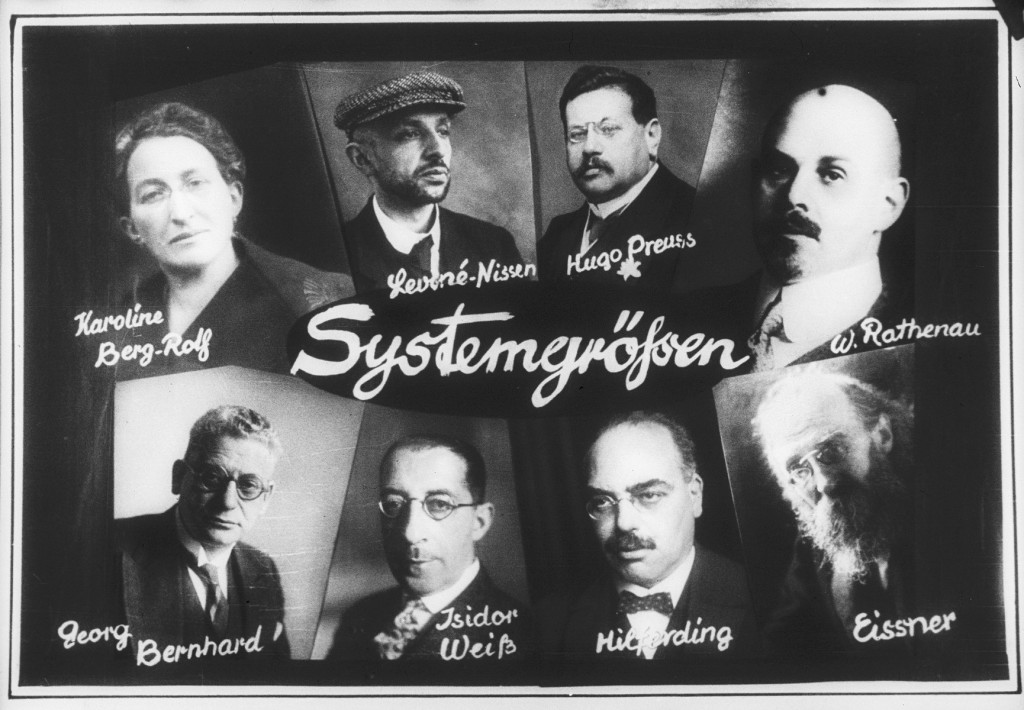Rudolf Hilferding
In 1933, Nazi students at more than 30 German universities pillaged libraries in search of books they considered to be "un-German." Among the literary and political writings they threw into the flames were the works of Rudolf Hilferding.
Excerpt
In the violent clash of hostile [economic] interests, the dictatorship of the magnates of capital will finally be transformed into the dictatorship of the proletariat.
—Das Finanzkapital (Finance Capital), Rudolf Hilferding, 1910
Which of Rudolf Hilferding's Works were Burned?
Das Finanzkapital (Finance Capital)
Die Schicksalstunde der deutschen Wirtschaftspolitik (The Fateful Hour of German Economic Policy)
Who was Rudolf Hilferding?

Rudolf Hilferding (1877-1941) was born in Vienna, but later changed his citizenship from Austrian to German. As editor of two official socialist newspapers, he voiced strong anti-Nazi views. He also served as Social Democratic Party deputy in the German parliament from 1924 to 1933. He was twice finance minister.
The Nazi persecution of Hilferding was unrelenting. Both a Jew and well-known socialist, he was forced to flee Germany in March 1933. He eventually settled in France. His books on economic policies, arguing for a more socially just form of capitalism, were burned in Nazi Germany in 1933. Hilferding tried to escape from France after the German invasion in 1940. The Vichy government, at the insistence of the Nazis, cancelled his exit visa. French police turned him over to the Gestapo and he died in February 1941 after torture in prison.
Critical Thinking Questions
- If Jews were the principal target during the Holocaust, why were books written by non-Jewish authors burned?
- How did the German public react to the book burnings? What were some of the reactions outside of Germany?
- Why do oppressive regimes promote or support censorship and book burning? How might this be a warning sign of mass atrocity?

